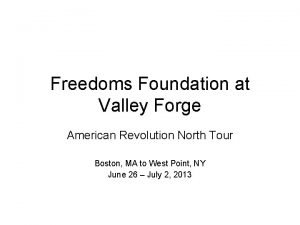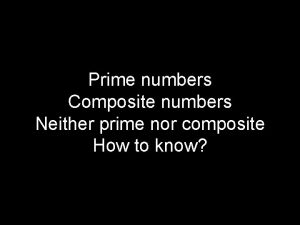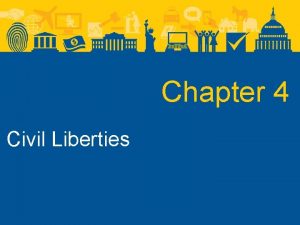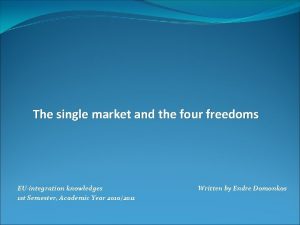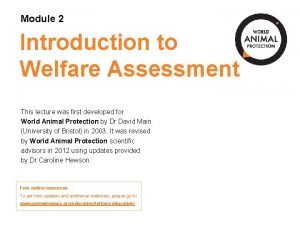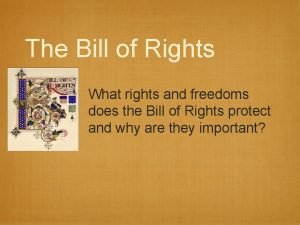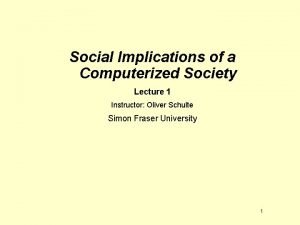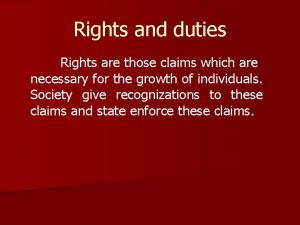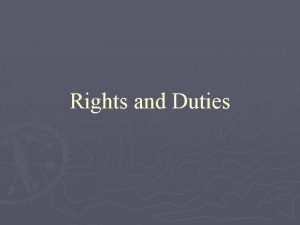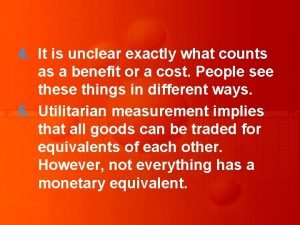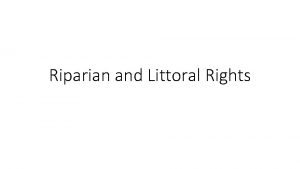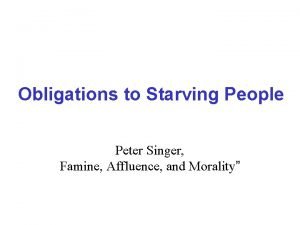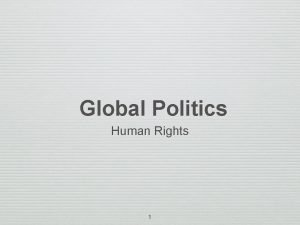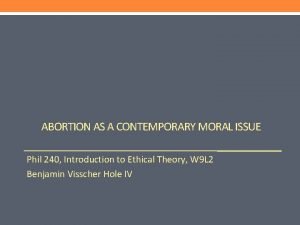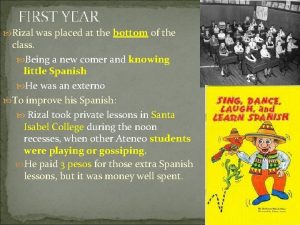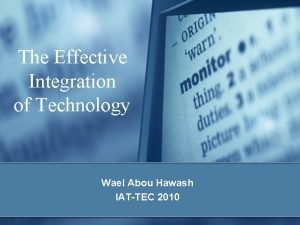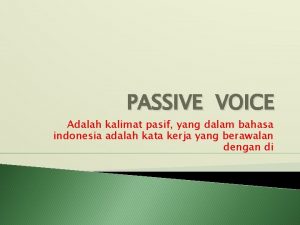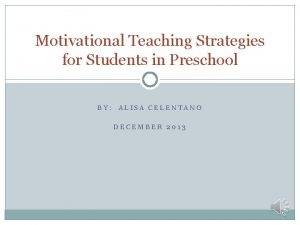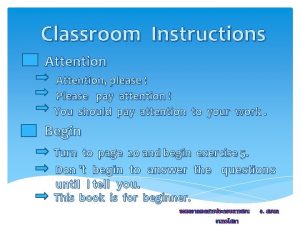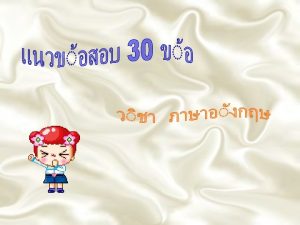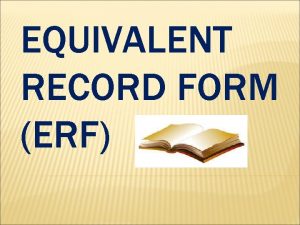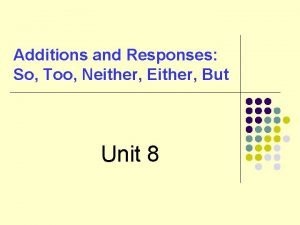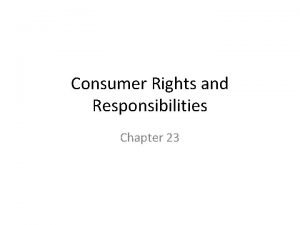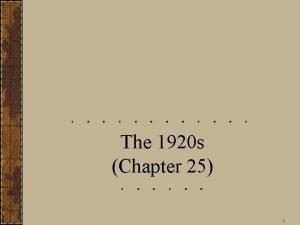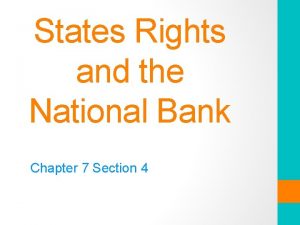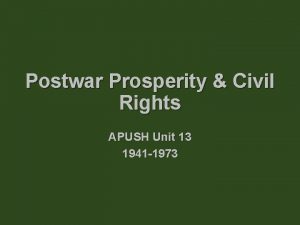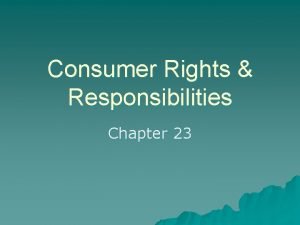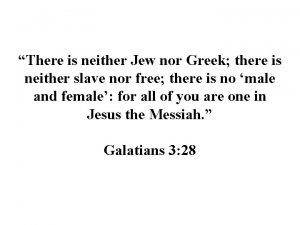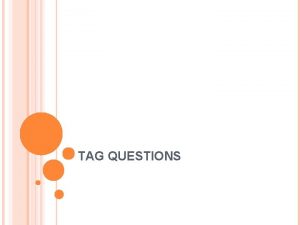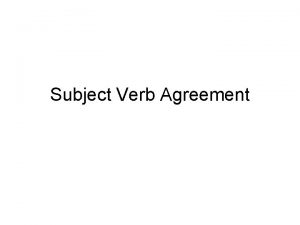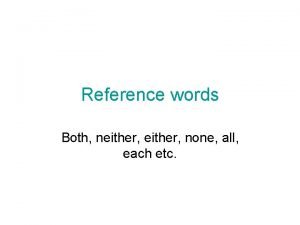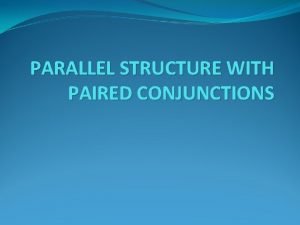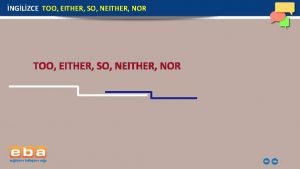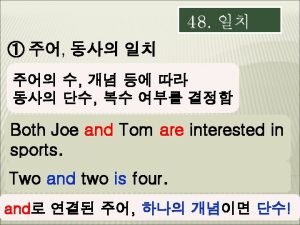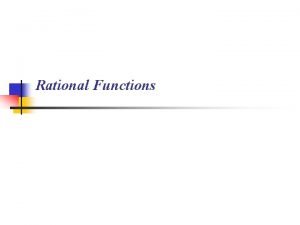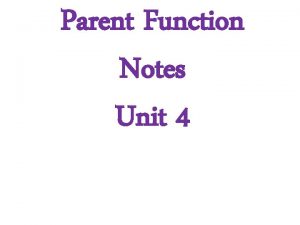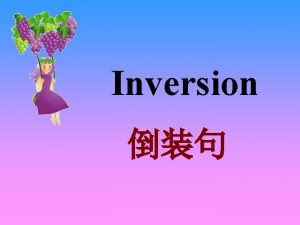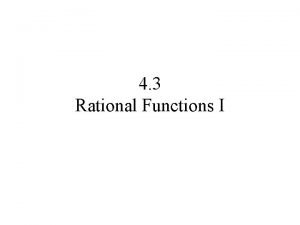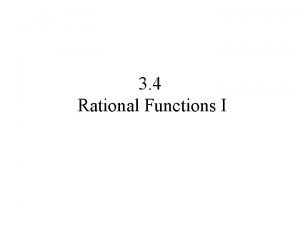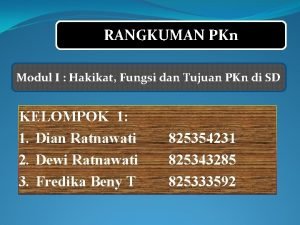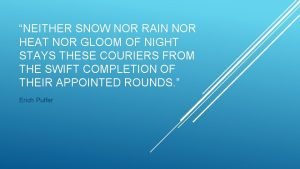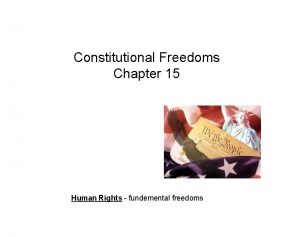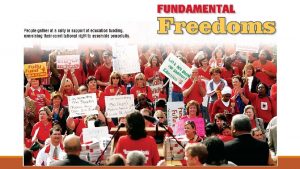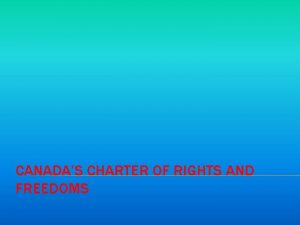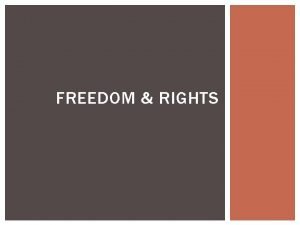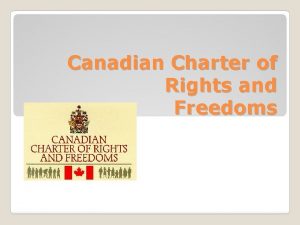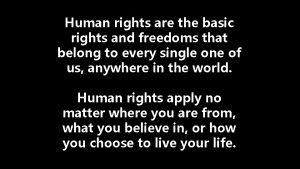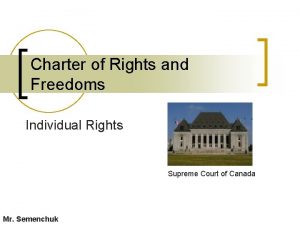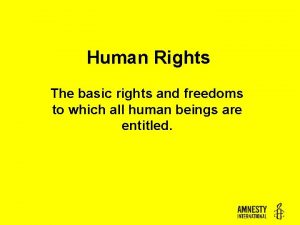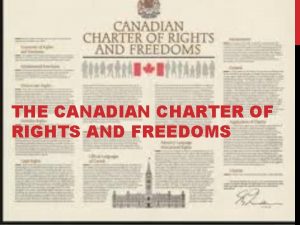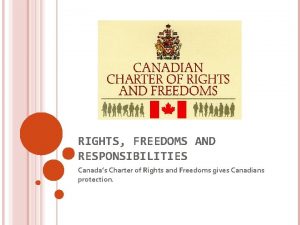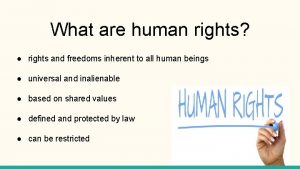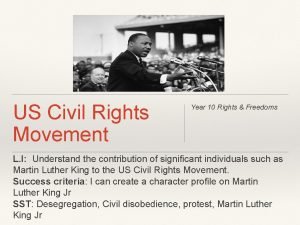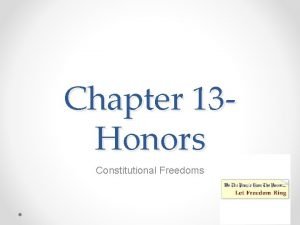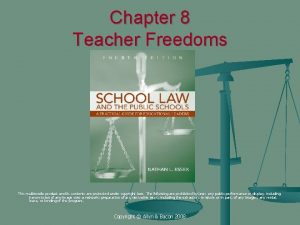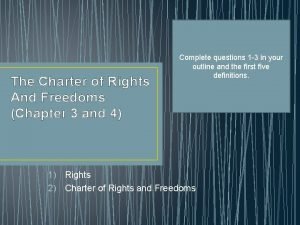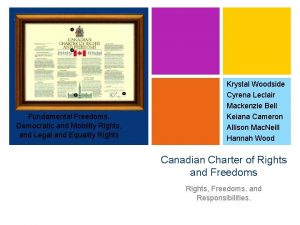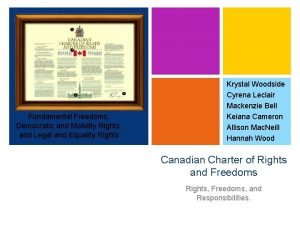Teacher Rights and Freedoms Chapter 16 Neither students





















































- Slides: 53

Teacher Rights and Freedoms Chapter 16 “Neither students nor teachers shed their constitutional rights at the schoolhouse gate. ” Abe Fortas Tinker v. Des. Moines

First Amendment: Primary Repository The First Amendment includes the freedoms of speech, expression, association, and religion, and each has been litigated and applied to the public schools.

Speech Rights of Public Employees The fundamental maxim of free speech says that “government must tolerate and cannot restrain the exercise of free speech in open debate by the public regardless of whether it is offensive, tumultuous or discordant. ”

Speech Rights of Public Employees continued… Such a right, however, is not absolute and there are exceptions where freedom of speech has limitations.

Legal relationship between teacher and board is dependent upon: Constitutional rights and freedoms of teachers as citizen Statutory relationships that govern conduct of public schools Contractual conditions of employment created and agreed to by both teacher and employer.

Bill of Rights No trespassing signs of the Constitution Individual rights and freedoms found in the first Ten Amendments Most basic “thou shalt nots” are freedom of religion, speech, press, assembly, due process and freedom from warrantless searches

Academic Freedom Lernfreheit = freedom to learn Lehrfreiheit = freedom to teach Forerunners of academic freedom Not in and of itself a separate constitutional protection Desirable end to be achieved

Academic Freedom is a “term that is often used, but little explained by federal courts. ” Supreme Court has not established “a First Amendment Right to Academic Freedom that belongs… to one individual” Urofsky v. Gilmore (4 th Cir. 2000).

The First Amendment Basic repository of the primary and essential rights and freedoms.

Public Employee Speech Rights What a teacher may do or say is governed by Supreme Court precedents covering the constitutional conditions of public employment.

Public Employee Speech Rights continued… If speech by employment interferes with governmental operation, it can be curtailed, but speech by non-employees cannot be inhibited under the same standards.

Employee Interest v. State Interest Speech that is a matter of “public opinion” Speech that is a matter of “personal interest”

Teacher Free Speed Cases Pickering Teacher’s Right of Speech a) Public Concern b) Balance Connick Public v. Private Concern Garcetti Pursuant to Duty Mt. Healthy Givhan Motivating Factors Public Concern in Private

Pickering v. Board of Education (1968) “Freedom of speech, while not absolute in all circumstances, is nevertheless sufficiently strong to require that the state show a “compelling state interest” in order to overcome a teacher’s right to speak out on issues of public importance. ”

Pickering continued… Before 1968 teachers were reluctant to become involved in politics Teacher in Pickering was fired for sending a letter to the local newspaper criticizing the way school officials raised money for the schools

The Supreme Court: Pointed out that Pickering’s statements in no way harmed the operation of the school district Did not affect the teacher’s performance A teacher’s exercise of his right to speak on issues of public importance may not furnish the basis for his dismissal from public employment.

Public v. Private Interest Balancing achieved in Pickering DOES NOT REMOVE ALL state restraint on teacher activities. Interest of the public is to a great extent dependent on teachers’ status, appearance, stature in the community The school must have a compelling reason to overcome the teachers interest.

Public v. Private Interest continued… Teacher’s rights are NOT absolute and can be overcome if the public necessity is great enough.

Fundamental Maxim of Free Speech: “Government must tolerate and cannot restrain the exercise of free speech in open debate by the public regardless of whether it is offensive, tumultuous, or discordant. ”

Pickering’s Two-Prong Test 1) Did public Employee speak as citizen, on matter or public concern. 2) If answer is “yes”, Then was the speech disruptive to educational program.

Connick v. Myers (1983) First Amendment free speech is protected when an employee speaks out on “MATTERS OF PUBLIC CONCERN. ” The court must weigh the employee’s interest in speaking out against the state’s interest in providing efficient public services. Speech exercised NOT AS A CITIZEN is NOT protected.

Connick and Myers combined: Form a two-step free speech test: 1) Is the speech a matter of public concern? 2) If the speech is a matter of public concern, then the court must then apply the Pickering balance test.

Balancing Test Did the speech activity disrupt the educational process, if “yes” then teacher may be dismissed.

Garcetti v. Ceballos (2006) Not a teacher case, a public employee case Statements made by public employee, pursuant to official duties, that employer disagrees with, are not protected by First Amendment.

Weintraub v. Board of Education (2 nd Cir. 2010) Complaint to supervisor by teacher and filing union grievance is “pursuant to official duties” and not protected speech as per the Garcetti Case.

Williams v. Dallas Independent School District (5 th Cir. 2007) Coach’s speech was made while performing his official duties, therefore not protected.

Lee v. York County School th Division (4 Cir. 2007) Materials posted on a classroom bulletin board by teacher was curricular in nature and, thus were not protected speech on a matter or public concern.

Mayer v. Monroe Co. Comm’ty Sch. Cooperation (7 th Cir. 2007) First Amendment does not entitle Teacher to advocate her viewpoint on an Antiwar Demonstration during classroom session.

Mt. Healthy City Sch. Dist. Bd. of Educ. v. Doyle (1977) Untenured teacher not rehired Teacher who otherwise does not deserve to be rehired could not better his position by resorting to the protection of free speech

Mt. Healthy continued Could a teacher not be rehired if a constitutionally protected right played a substantial part in the decision? Yes, if the board would not have rehired the teacher even in the absence of the protected activity, then no constitutional deprivation took place.

Mt. Healthy provided an additional rule: Employee who challenges an adverse action by a board must first meet the burden of showing that: • “his conduct was constitutionally protected AND • that there was a presumption that the conduct was a ‘substantial factor’ or ‘motivating factor’ for the school board’s action. ”

If plaintiff succeeds in creating that presumption, then: The burden shifts to the school board to show by a “preponderance of evidence that it would have reached the same decision…even in the absence of the protected conduct. ” Board must prove “other” important reasons to dismiss.

Givhan v. Western Consolidated Sch. Dist. (1979) No First Amendment freedom is lost to a teacher who chooses to communicate privately with his or her employer.

Stoman v. Colleton County School District (4 th Cir. 1993) Free speech is not offended by teacher dismissed for letter to a new teacher’s encouraging sick-out.

Privacy Word privacy not mentioned in U. S. Constitution. Supreme Court has said various guarantees in Bill of Rights “creates zones of privacy. 1 st, 3 rd, 4 th, 5 th and 9 th Amendment “zones”.

Teacher Workplace Searches With regard to teacher privacy, and the search of teacher workplaces, the Supreme Court has said that a public employer, such as a school district, should not be required to justify searches with a showing of probable cause because, according to the Court, to do so would “impose intolerable” burdens on the public employers

Teacher Workplace Searches Supreme Court has distinguished between an employer search and a police search. The rule of law to which school authorities most adhere is governed by the standard of Reasonableness

Mental and Physical Examination of Teachers serve as role models. The Courts attempt to determine a rational nexus between the conduct in question and the professional duties being performed.

Daury v. Smith (1 st Cir. 1988) Requirement that principal see a psychiatrist did not violate his right of privacy. A person has a constitutional right of privacy. That privacy right must often give way to considerations of public interest.

Drug Testing of Teachers Reasonable individualized suspicion drug testing. Random drug testing.

Drug Testing continued… “Special needs” – safety sensitive. Skinner v. Railway Labor Executive’s Ass’n (1989) National Treasury Employee’s Union v. Von Raab (1989) Chandler v. Miller (1997)

Drug Testing continued… In limited circumstances, where the privacy interests implicated by the search are minimal, and where an important governmental interest furthered by the intrusion would be placed in jeopardy by a requirement of individualized suspicion, a search may be reasonable despite the absence of said suspicion.

Drug Testing of Teachers Drug testing for individuals has been challenged under the Fourth Amendment of the U. S. Constitution. The Supreme Court has allowed drug testing where the health and safety of the public is involved and if the behavior of the teacher is erratic or unusual, thereby establishing appropriate suspicion.

Knox Co. Educ. Association v. Knox Co. Bd. of Educ. (1998) This case raises the very controversial issue of “suspicionless” searches. • Is the Fourth Amendment violated if a search is conducted without specific suspicion? • In permitting such searches, the court in this case is creating new law that tends to reduce Fourth Amendment protections for the individual teacher.

Knox Co. Educ. Association v. Knox Co. Bd. of Educ. (1998) Here, a teacher union brought this suit, challenging the drug and alcohol testing procedures adopted by the Knox County Board in Tennessee. The court held that suspicionless drug testing was constitutional and a suspicion-based drug testing policy was constitutional. The court also held that it could not be determined from the record whether suspicionbased alcohol testing policy was constitutional.

Points to Consider: 1. Drug testing utilizing urinalysis is a “search” that falls within ambit of Fourth Amendment. (U. S. Const. amend. IV) 2. Generally, in order to be reasonable, a search must be undertaken pursuant to a warrant issued upon the showing of probable cause. • That is, a valid search must ordinarily be based on individualized suspicion of wrongdoing.

Points to Consider continued… 3. In evaluating the constitutionality of an employer’s drug testing policy, analysis focuses on: (1) whether the group of people targeted for testing exhibits a pronounced drug problem, and if not, whether the group occupies a unique position such that existence of a pronounced drug problem is unnecessary to justify suspicionless testing; and (2) the magnitude of harm that could result from use of illicit drugs on job.

Points to Consider continued… 4. The board of education’s policy of suspicionless drug testing of all individuals who applied for, transferred to, or were promoted to, “safety sensitive” positions did not violate Fourth Amendment. • Although record evidence did not reflect that teachers and other such officials had any track record of pronounced drug problems, the suspicionless testing regimen was justified by the unique role these individuals played in lives of school children.

Points to Consider continued… 5. The test for whether employees hold safety sensitive positions, such as would give government compelling interest in testing them for drugs or alcohol, is whether employees discharge duties fraught with risks of injury to others where even a momentary lapse of attention can have disastrous consequences. • There must be a clear, direct nexus between nature of the employee’s duty and nature of the feared violation.

Points to Consider continued… 6. The board of education’s policy, providing for drug testing of an employee if the director of personnel reasonably suspected that employee’s work performance or on-the-job behavior may have been affected by illegal drugs or alcohol, did not violate Fourth Amendment. • The policy further enumerated circumstances under which substance screening could be considered, and these requirements of “reasonable cause” sufficiently limited discretion of officials administering the rule.

Jones v. Graham Co. Bd. of Educ. (N. C. Ct. App. 2009) • Random drug testing of teachers violated state constitution American Federation of Teachers. West Virginia, AFL-CIO v. Kanawha Co. Bd. of Ed. (S. D. W. V. 2009) • Ruled random drug testing of teachers violated the constitution; criticized Knox decision.

Freedom of Religion Title VII – Civil Rights Act of 1964 Reasonably accommodate Undue hardship on employer Promoting Religion Religious Garb

Privilege Against Self Incrimination Fifth Amendment against self incrimination intended for criminal proceeding. Fifth Amendment against self incrimination not intended to shield teacher from question presented by employer
 Freedoms foundation teacher programs
Freedoms foundation teacher programs A number which is neither prime nor composite
A number which is neither prime nor composite Chapter 19 civil liberties first amendment freedoms
Chapter 19 civil liberties first amendment freedoms Civil liberties first amendment freedoms
Civil liberties first amendment freedoms Four freedoms of the eu
Four freedoms of the eu Four freedoms of the eu
Four freedoms of the eu Animal welfare inputs and outputs
Animal welfare inputs and outputs Freedoms
Freedoms Freedoms
Freedoms Negative rights vs positive rights
Negative rights vs positive rights Characteristics of rights
Characteristics of rights Legal rights and moral rights
Legal rights and moral rights Positive rights and negative rights
Positive rights and negative rights Rights and responsibilities of students
Rights and responsibilities of students Littoral rights vs riparian rights
Littoral rights vs riparian rights Negative rights
Negative rights Negative rights vs positive rights
Negative rights vs positive rights Negative rights vs positive rights
Negative rights vs positive rights Vicenta ybardolaza
Vicenta ybardolaza Wael is the teacher of n students
Wael is the teacher of n students His landlord asked him to move
His landlord asked him to move Intrinsic motivation examples in the classroom
Intrinsic motivation examples in the classroom Good morning student how are you
Good morning student how are you Good morning students!
Good morning students! Pay attention the teacher's instructions
Pay attention the teacher's instructions Afternoon teacher
Afternoon teacher Good morning madam. what's the problem
Good morning madam. what's the problem Good morning, students
Good morning, students Guidelines for erf for teachers
Guidelines for erf for teachers All every each
All every each Responses with too and either
Responses with too and either Chapter 23 consumer rights and responsibilities
Chapter 23 consumer rights and responsibilities Chapter 23 consumer rights and responsibilities
Chapter 23 consumer rights and responsibilities Chapter 14 postwar prosperity and civil rights
Chapter 14 postwar prosperity and civil rights Chapter 7 section 4 states rights and the national bank
Chapter 7 section 4 states rights and the national bank La raza apush
La raza apush Chapter 23 consumer rights and responsibilities
Chapter 23 consumer rights and responsibilities William shakespeare education
William shakespeare education There is no jew nor greek slave or free
There is no jew nor greek slave or free This or that tag
This or that tag Subject verb agreement exercise
Subject verb agreement exercise All both neither none either
All both neither none either Parallel structure with paired conjunctions
Parallel structure with paired conjunctions Too either
Too either Or vs nor
Or vs nor Either a or b is or are
Either a or b is or are If n = m then y = 0
If n = m then y = 0 Linear parent function
Linear parent function Inversion neither nor
Inversion neither nor If n = m then y = 0
If n = m then y = 0 Asymptote that is neither horizontal nor vertical
Asymptote that is neither horizontal nor vertical Resume modul 1 pembelajaran pkn di sd
Resume modul 1 pembelajaran pkn di sd Slopes of parallel and perpendicular lines
Slopes of parallel and perpendicular lines Angareion
Angareion
